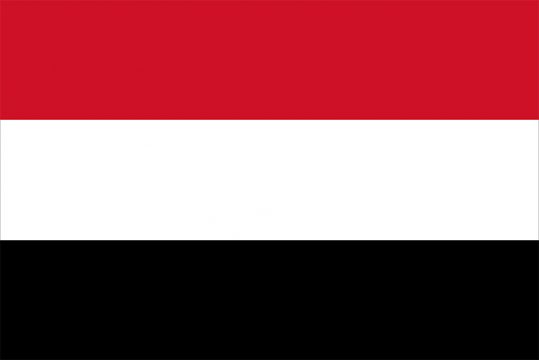The discussion of occupations in the Middle East doesn’t end with Palestine. On the southern end of the Arabian Peninsula, south of the Kingdom of Saudi Arabia and west of the Sultanate of Oman, lies a poverty-stricken, war-torn, oil-rich nation of 28 million, Yemen. Yemen is a country that is familiar with occupation, being occupied by the Ottomans for centuries and the British after World War I.
Yemen has never been a politically stable country, going through a civil war from the ‘60s to the ‘90s and currently facing riots and terrorism. The people of Yemen also overthrew their dictator, Ali Abdullah Saleh, in 2011. Saleh was supported by the United States and Saudi Arabian governments. After Saleh was toppled, violence between government forces led by Saleh’s Vice President Abdrabbah Mansur Hadi and the majority-Shia Iran-backed Houthi rebel forces increased.
In 2015, a Saudi-led coalition that included the United Arab Emirates, Morocco, Senegal, Sudan, Jordan, Egypt and Bahrain began an indiscriminate bombing campaign in Houthi-led areas of Yemen, in support of the Hadi government, with military assistance from the United States and other western governments. Qatar dropped out of the coalition after falling out of favor with the Saudi government in 2017. The Saudi campaign in Yemen coincided with Crown Prince Muhammad bin Salman al-Saud (MBS), who ordered the brutal murder of Washington Post journalist Jamal Khashoggi, coming to power. While there is not a direct correlation here, MBS is a young, smart autocrat, in contrast to his father, King Salman bin Abdulaziz al-Saud, who is suffering from Alzheimer’s.
According to the Yemen Data Project, Saudi-led bombings in Yemen have been responsible for over 10,000 civilian injuries and over 8,000 deaths. Saudi warplanes have targeted medical facilities, schools, markets and electrical and water lines. The war appeared to be coming to an end in early 2021, but after the United Nations stopped monitoring Yemen in October 2021, civilian deaths once again began ticking up, halting in April 2022.
Former president Barack Obama supported the Saudi government during the beginning of the war, and former president Donald Trump, who is friends with Mohammed bin Salman, vetoed several bills passed by Congress to end U.S. weapons sales to Saudi Arabia. Although Biden promised an end to the war, he has continued to provide Saudi Arabia with weapons.
Saudi Arabia has also bombed farms and put a land, aerial and naval blockade on the country’s ports, leading to food, water, medicine and fuel shortages. Although Saudi Arabia claims to have ended the blockade, Yemen’s ports are still not operating at full capacity. Yemen imports 90% of its food, so by bombing farms and blockading ports, including the largest port in the country in the city of Hodeidah, Saudi Arabia is starving Yemenis. 80% of Yemenis require food rations in order to survive, according to the World Food Programme. The blockade has also halted the importation of medicine into Yemen, which has exacerbated the COVID-19 pandemic in the country. Yemen has a 29% COVID-19 fatality rate, five times the global average.
According to Yemen’s Minister for Oil and Minerals Ahmed Daress, the Saudi blockade has stolen around three-quarters of Yemen’s oil wealth. Daress claimed that Saudi Arabia has stolen over five billion dollars from Yemen by transferring funds from Yemen’s oil sales to Saudi Arabia’s national bank.
Saudi Arabia, Israel and the United Arab Emirates have also engaged in an occupation of the Yemeni island of Socotra. Over the past four years, Israeli and Emirati intelligence forces have used Socotra as a base, with support from the Saudi government. Residents of Socotra expressed fear that the three countries will torture, kill and/or imprison locals who speak out.
The United Nations has described this conflict as “one of the worst humanitarian disasters of modern times.” However, the U.N. has backed off criticizing the Saudi government due to fears that they will stop providing humanitarian assistance to the people they’re bombing. The U.N. got involved once again earlier this year due to increasing violence.
According to the independent news station Democracy Now, a two-month U.N.-negotiated ceasefire between the Houthis and the Saudi-led coalition was agreed to in April, the port in Hodeidah is accepting limited fuel shipments and the airport in the capital city of Sana’a has been reopened. However, according to Sarah Leah Whitson from the group Democracy for the Arab World Now, the blockade remains mostly in place, and the Houthis have been excluded from U.N.-brokered negotiations, causing some concern about the future of the ceasefire. Whitson added that Hadi has formally stepped aside but is likely looking to build a governing coalition that excludes the Houthis. Whitson believes that excluding the Houthis is a mistake, but many see the ceasefire as a positive development in a country teetering on the brink of mass death.

